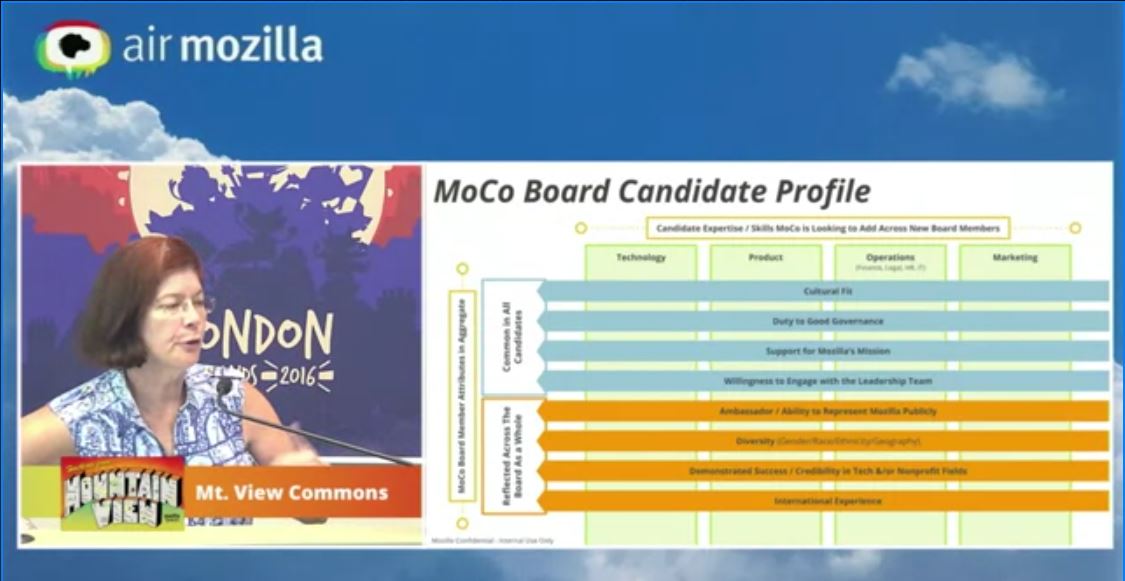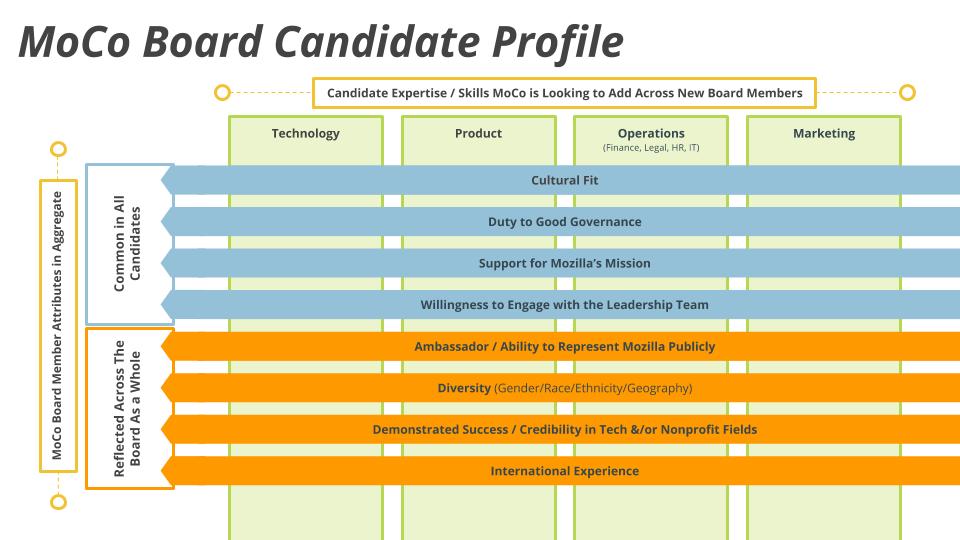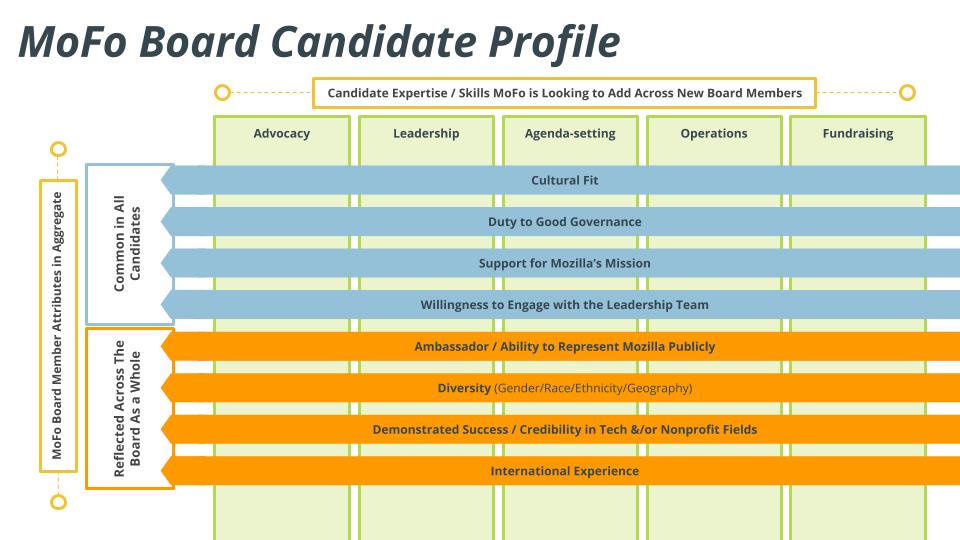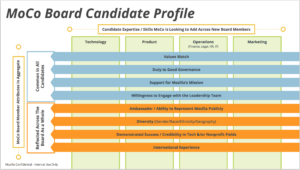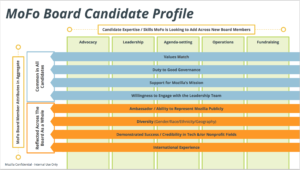This post was originally published on the Mozilla Blog.
In a post earlier this month, I mentioned the importance of building a network of people who can help us identify and recruit potential Board level contributors and senior advisors. We are also currently working to expand both the Mozilla Foundation and Mozilla Corporation Boards.
The role of a Mozilla Board member
I’ve written a few posts about the role of the Board of Directors at Mozilla.
At Mozilla, we invite our Board members to be more involved with management, employees and volunteers than is generally the case. It’s not that common for Board members to have unstructured contacts with individuals or even sometimes the management team. The conventional thinking is that these types of relationships make it hard for the CEO to do his or her job. We feel differently. We have open flows of information in multiple channels. Part of building the world we want is to have built transparency and shared understandings.
We also prefer a reasonably extended “get to know each other” period for our Board members. Sometimes I hear people speak poorly of extended process, but I feel it’s very important for Mozilla. Mozilla is an unusual organization. We’re a technology powerhouse with a broad Internet openness and empowerment mission at its core. We feel like a product organization to those from the nonprofit world; we feel like a non-profit organization to those from the Internet industry.
It’s important that our Board members understand the full breadth of Mozilla’s mission. It’s important that Mozilla Foundation Board members understand why we build consumer products, why it happens in the subsidiary and why they cannot micro-manage this work. It is equally important that Mozilla Corporation Board members understand why we engage in the open Internet activities of the Mozilla Foundation and why we seek to develop complementary programs and shared goals.
I want all our Board members to understand that “empowering people” encompasses “user communities” but is much broader for Mozilla. Mozilla should be a resource for the set of people who care about the open Internet. We want people to look to Mozilla because we are such an excellent resource for openness online, not because we hope to “leverage our community” to do something that benefits us.
These sort of distinctions can be rather abstract in practice. So knowing someone well enough to be comfortable about these takes a while. We have a couple of ways of doing this. First, we have extensive discussions with a wide range of people. Board candidates will meet the existing Board members, members of the management team, individual contributors and volunteers. We’ve been piloting ways to work with potential Board candidates in some way. We’ve done that with Cathy Davidson, Ronaldo Lemos, Katharina Borchert and Karim Lakhani. We’re not sure we’ll be able to do it with everyone, and we don’t see it as a requirement. We do see this as a good way to get to know how someone thinks and works within the framework of the Mozilla mission. It helps us feel comfortable including someone at this senior level of stewardship.
What does a Mozilla Board member look like
Job descriptions often get long and wordy. We have those too but, for the search of new Board members, we’ve tried something else this time: a visual role description.
Here is a short explanation of how to read these visuals:
- The horizontal lines speaks to things that every Board member should have. For instance, to be a Board member, you have to care about the mission and you have to have some cultural sense of Mozilla, etc. They are a set of things that are important for each and every candidate. In addition, there is a set of things that are important for the Board as a whole. For instance, we could put international experience in there or whether the candidate is a public spokesperson. We want some of that but it is not necessary that every Board member has that.
- In the vertical green columns, we have the particular skills and expertise that we are looking for at this point.
- We would expect the horizontal lines not to change too much over time and the vertical lines to change depending on who joins the Board and who leaves.
I invite you to look at these documents and provide input on them. If you have candidates that you believe would be good Board members, send them to the boarddevelopment@mozilla.com mailing list. We will use real discretion with the names you send us.
We’ll also be designing a process for how to broaden participation in the process beyond other Board members. We want to take advantage of the awareness and the cluefulness of the organization. That will be part of a future update.
—
Update August 2, 2016
Both the Mozilla Foundation and Mozilla Corporation Board Candidate Profiles have been updated. Cultural Fit has been updated to ‘Values Match’.

